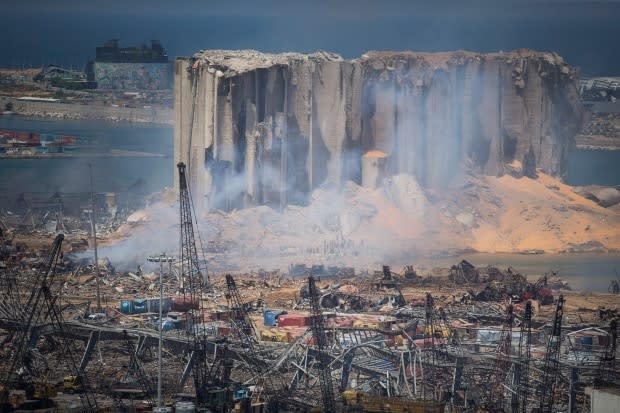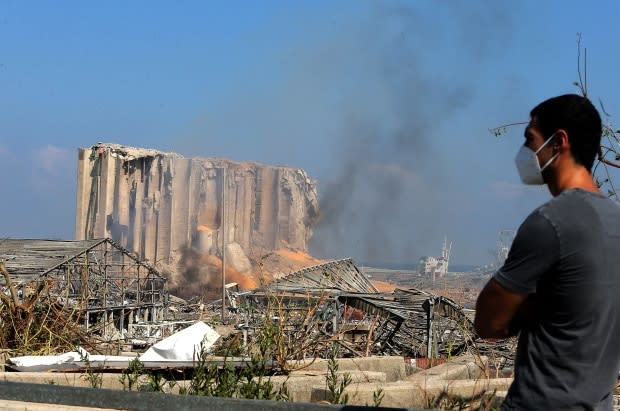Ammonium nitrate behind Beirut blast once a popular Canadian farming fertilizer but now regulated or replaced
Investigators suspect the deadly blast that ripped across Beirut on Tuesday may have been caused by negligence in the storage of thousands of tonnes of ammonium nitrate, a highly explosive fertilizer.
This chemical compound was used on Canadian farms to help with plant growth years ago but is no longer widely used and instead has been replaced by other fertilizer alternatives, including urea, urea ammonium nitrate and calcium ammonium nitrate.
Mario Tenuta, the industrial research chair in 4R Nutrient Stewardship and a professor of applied soil ecology at the University of Manitoba, calls ammonium nitrate a "very hazardous compound."
"It's one of the very first fertilizers that have been made and particularly made for two purposes: one for fertilizer for crops and secondly, as an explosive primarily in the mining industry," he said.
"And hence, we had an explosion [Tuesday]. And unfortunately, what happened [in Lebanon] is not an anomaly. We had an explosion a few years ago in Texas at a fertilizer plant and every number of years, we do have explosions with ammonium nitrate."
Tenuta said when ammonium nitrate is exposed to heat or an ignition source and humidity, it can form gases that can explode violently, which he suspects is what happened in Beirut. But he says Canadians should not be concerned about the chemical compound here.
"The majority of Canada does not use ammonium nitrate fertilizer anymore," he said, with the exception of Atlantic Canada, which is decreasing its use of it lately as well.

Other products cheaper to use, don't have issues
"We're very careful on who it's sold to," he said, adding that the fertilizer industry in Canada has a code of practice for handling and use of ammonium nitrate.
"There's a whole bunch of things that are quite involved in how it's stored and things like that," Tenuta said. "You've got to go through a little bit of hoops if you want to use the product, and it's just not convenient."
"There are other products that can be cheaper and don't have issues involved with it."
It's for these reasons that fertilizer manufacturers switched over to other chemicals, according to Jim Campbell, general manager of AGRIS Co-operative Ltd. that distributes fertlizer, among other products.
"Ammonium nitrate has been a very good nitrogen source for farm use for many, many years, but certainly its storage challenges and its volatility over the years has raised concern from big factories and retail storage, people like ourselves and farmers," he said.

Procedures in place to limit risk
"It's become very heavily regulated over the last 10 years. And as a result of that, fertilizer manufacturers have come up with more stable formulations that were as effective for farm use but weren't as volatile and as tricky to store."
Campbell said he's not aware of any Ontario or Canadian scenarios where ammonium nitrate exploded in a storage environment like the one in Beirut, adding that when it's used in the wrong hands or by people who don't know how to properly store it, it can be explosive.
"It's an almost ancient issue from our points of view in commercial agriculture," he said. "It's very unfortunate what's happened over there, but I think there'll be more to the story yet of what really happened."
"It didn't just explode sitting there by itself."
Tenuta reiterated that what happened in Beirut is not something that would happen in Ontario or in Canada as the chemical compound is carefully controlled.
"I am fairly confident that we have procedures in place to limit the risk," he said.
At least 135 people were killed and more than 5,000 were wounded in Tuesday's Beirut blast.


